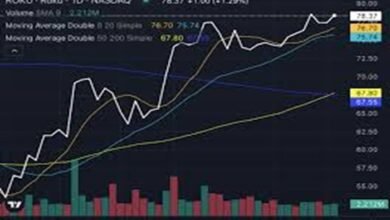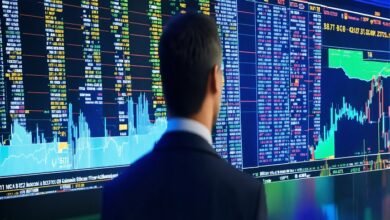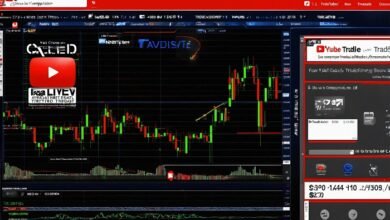Wholesale Forex Transactions: A Comprehensive Guide

Introduction
In the realm of forex trading, wholesale forex transactions play a pivotal role in shaping the dynamics of the market. Understanding the intricacies of wholesale forex transactions is essential for both seasoned traders and newcomers alike. This comprehensive guide aims to elucidate the fundamentals of wholesale forex transactions, shedding light on their significance and impact on the global financial landscape.
What Are Wholesale Forex Transactions?
Wholesale forex transactions refer to large-scale currency exchanges conducted by institutional players such as banks, hedge funds, multinational corporations, and central banks. These transactions involve substantial sums of money, typically exceeding millions or even billions of dollars, and are executed at wholesale exchange rates.
Key Participants in Wholesale Forex Transactions
The participants in wholesale forex transactions include commercial banks, investment banks, hedge funds, multinational corporations, central banks, and other financial institutions. These entities engage in wholesale forex transactions to facilitate international trade, manage currency risks, speculate on currency movements, or execute monetary policy.
Mechanics of Wholesale Forex Transactions
Wholesale forex transactions are facilitated through interbank trading platforms such as the Foreign Exchange Market (Forex), where participants can buy and sell currencies directly with one another. These transactions are executed electronically, with trades occurring 24 hours a day across different time zones.
Factors Influencing Wholesale Forex Transactions
Several factors influence wholesale forex transactions, including geopolitical events, macroeconomic indicators, interest rate differentials, central bank policies, and market sentiment. These variables contribute to the volatility and liquidity of the forex market, impacting the exchange rates at which wholesale transactions are conducted.
Importance of Wholesale Forex Transactions
Wholesale forex transactions play a crucial role in maintaining liquidity and efficiency in the global currency market. They facilitate international trade by providing liquidity for currency pairs, enabling businesses to conduct cross-border transactions seamlessly.
Risks Associated with Wholesale Forex Transactions
Despite their benefits, wholesale forex transactions are not without risks. Market volatility, liquidity constraints, counterparty risk, and regulatory changes can all impact the outcomes of these transactions, potentially leading to financial losses for participants.
Regulatory Framework for Wholesale Forex Transactions
Regulatory authorities, such as central banks and financial regulatory agencies, oversee wholesale forex transactions to ensure market integrity, transparency, and stability. Regulatory frameworks vary across jurisdictions, with stringent guidelines in place to govern the conduct of wholesale forex trading activities.
Impact of Wholesale Forex Transactions on Exchange Rates
Wholesale forex transactions exert significant influence on exchange rates, as large-scale buying or selling activities can affect currency supply and demand dynamics. Central banks also intervene in the forex market through wholesale transactions to stabilize exchange rates and support monetary policy objectives.
Future Trends in Wholesale Forex Transactions
Advancements in technology, such as algorithmic trading, artificial intelligence, and blockchain technology, are shaping the future of wholesale forex transactions. These innovations are expected to enhance efficiency, transparency, and accessibility in the forex market, opening up new opportunities for participants.
Conclusion
wholesale forex transactions form the backbone of the global currency market, facilitating international trade, investment, and financial transactions. Understanding the mechanics, participants, and factors influencing wholesale forex transactions is essential for navigating the complexities of the forex market and making informed trading decisions.
FAQ
Q1. What distinguishes wholesale forex transactions from retail forex trading?
A1. Wholesale forex transactions involve large institutional players trading massive volumes of currency, whereas retail forex trading caters to individual traders speculating on currency pairs through online platforms.
Q2. How do central banks participate in wholesale forex transactions?
A2. Central banks engage in wholesale forex transactions to manage their foreign exchange reserves, influence exchange rates, and implement monetary policy measures such as interest rate adjustments.
Q3. Are wholesale forex transactions subject to regulatory oversight?
A3. Yes, wholesale forex transactions are regulated by central banks, financial regulatory agencies, and international organizations to ensure market integrity, transparency, and stability.
Q4. What are the main risks associated with wholesale forex transactions?
A4. Risks associated with wholesale forex transactions include market volatility, liquidity constraints, counterparty risk, regulatory changes, and operational risks.
Q5. How do advancements in technology impact wholesale forex transactions?
A5. Technological advancements such as algorithmic trading, artificial intelligence, and blockchain technology are transforming wholesale forex transactions, enhancing efficiency, transparency, and accessibility in the forex market.





